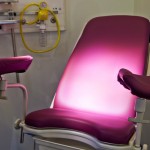
And while there are pros and cons to different types of treatment, one in particular has proven to be dangerous for many patients.
Transvaginal mesh implants, marketed as a treatment for urinary incontinence and pelvic organ prolapse, have generated thousands of lawsuits over their tendency to fail and cause health problems. The most common reported problem is the vaginal mesh eroding and sticking through the walls of the bladder and vagina, causing severe pain.
In the first of about 11,000 lawsuits against vaginal mesh manufacturers to go to trial, a New Jersey jury recently awarded $11.1 million to a woman who received a mesh implant manufactured by Johnson & Johnson’s Ethicon subsidiary.
According to the Mayo Clinic, forms of physical therapy used to treat urinary incontinence may include the following:
- Pelvic floor muscle exercises, also known as Kegel exercises, strengthen the urinary sphincter and pelvic floor muscles that help control urination. They involve imagining that you’re trying to stop your urine flow, and squeezing the muscles you would use for that. The Mayo Clinic recommends that you hold for a count of three and repeat.
- Electrical stimulation incorporates electrodes that are temporarily inserted into your rectum or vagina. Gentle electrical stimulation is applied to the pelvic floor muscles. This method takes several months and multiple treatments to work, according to the Mayo Clinic.
If you have a vaginal mesh implant, you should consult with a doctor if you have any ongoing symptoms or health concerns. If you have significant injuries, you should also consult with a mesh lawyer to discuss your legal rights.
See more information about urinary incontinence here:
https://www.mayoclinic.com/health/urinary-incontinence/DS00404
